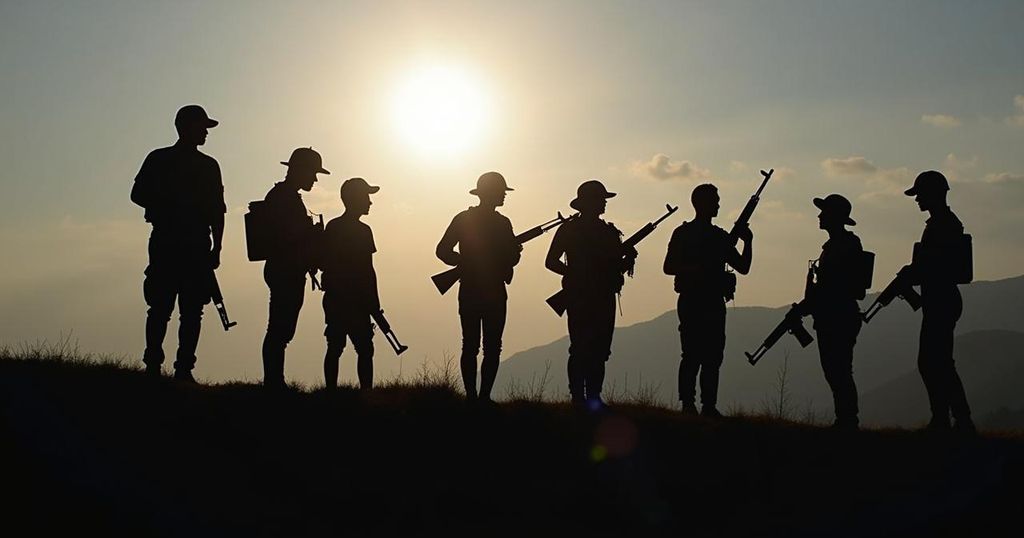El Salvador Tops Security Perceptions Survey as Chile, Ecuador Decline

The Gallup Global Safety Report 2024 reveals ongoing issues with security perceptions in Latin America and the Caribbean, despite some improvements. El Salvador has recorded a notable increase in perceived safety, contrasting with declining perceptions in Chile and Ecuador, where crime rates and the impacts of organized crime pose significant challenges. The aggregate data suggests a nuanced landscape of security across the region, shaped by governmental policies, organized crime, and social conditions.
Latin America and the Caribbean have maintained their status as the region with the lowest citizen perception of security, as evidenced by the recent Gallup Global Safety Report 2024. Despite slight improvements observed over the past few years, the report indicates that feelings of insecurity and distrust towards law enforcement persist throughout the region. The report evaluated citizens’ experiences with violent crime, their general feelings of safety, and their trust in police in 140 nations. Since the inception of this survey in 2015, Latin American countries have consistently ranked poorly regarding security perceptions, largely driven by the influences of drug trafficking, organized crime, and pervasive corruption. While aggregate regional data indicates a gradual improvement since 2017, significant variations are apparent in security perceptions across individual countries. In the 2024 index, El Salvador, Uruguay, Guatemala, Honduras, Paraguay, and the Dominican Republic have recorded improvements in their security perceptions compared to the previous year. Conversely, Chile, Argentina, Colombia, Peru, and Ecuador have seen declines in their scores. Venezuela and Mexico retained their positions in the rankings, but notable exclusions from this index include Haiti, which continues to experience a severe security crisis. A critical analysis of the recent report highlights three countries: Chile, Ecuador, and El Salvador. Chile: The 2024 survey reveals a concerning downward trend in perceptions of safety, with only 36% of Chileans feeling safe walking at night, a significant decline from prior years. The Law and Order Index for Chile stands at 68, notably below the global average. This increasing insecurity is aligned with the rising influence of organized crime, evidenced by an increase in the homicide rate from 3.2 per 100,000 inhabitants in 2014 to 5.1 in 2022. A staggering 135% increase in kidnappings has also been reported over the past decade. The emergence of transnational criminal organizations, such as Tren de Aragua, exacerbates the situation, although increased government security operations have raised concerns regarding potential human rights implications. Ecuador: The crisis in Ecuador is especially dire, with only 27% of citizens reporting feeling safe walking at night—the lowest in Latin America. The Law and Order Index score is a mere 55, among the world’s lowest. In Guayas province, a crime hotspot, just 11% of residents feel secure. The escalating violence, driven by drug trafficking and exacerbated by the COVID-19 pandemic, has made Ecuador a critical conduit for cocaine shipments to Europe. This has resulted in alarming homicide rates, peaking at nearly 50 per 100,000 inhabitants in 2023, as gang conflicts intensify amid struggles for control over drug trafficking routes. El Salvador: In stark contrast, perceptions of safety have remarkably improved in El Salvador, where 88% of residents now feel safe walking alone at night, marking a historical high. El Salvador’s Law and Order score of 89 is the highest in Latin America, surpassing recognized safe countries such as the Netherlands, Germany, and Spain. This transformation can be attributed to stringent measures implemented by President Nayib Bukele since 2022, including an extended state of emergency that has led to widespread arrests of gang members. However, the approach has not been without criticism, as it raises severe concerns about human rights violations and accountability in law enforcement. In conclusion, the Gallup Global Safety Report 2024 presents a complex picture of security perceptions across Latin America and the Caribbean. While some nations have experienced improvements, others are grappling with escalating violence and insecurity, reflecting the ongoing challenges posed by organized crime and the political responses to these issues.
The Gallup Global Safety Report 2024 presents an annual assessment of citizen perceptions regarding safety and criminal activity across various regions, notably Latin America and the Caribbean. This region has consistently ranked low in safety perceptions for years, fueled by factors such as drug trafficking, organized crime, and systemic corruption. The report evaluates citizens’ experiences with violent crime and their overall sense of security and trust in law enforcement, thereby providing crucial insights into the conditions affecting these nations.
The Gallup report underscores significant disparities in security perceptions across Latin America and the Caribbean. While El Salvador has achieved unprecedented levels of perceived safety through strict governmental measures, Chile and Ecuador have witnessed growing trends of insecurity, hinging on organized crime and violence. These contrasting experiences highlight the complexities and challenges that various nations face in addressing security concerns and achieving lasting public trust in law enforcement.
Original Source: insightcrime.org








